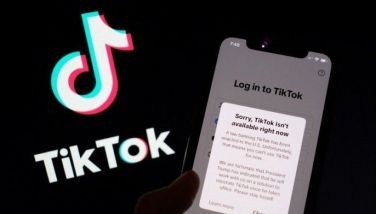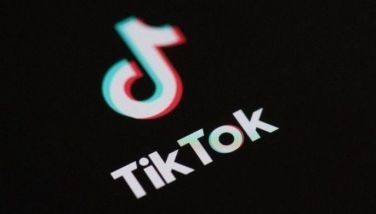Anti-terror target: Hackers
November 30, 2001 | 12:00am
A global war is raging and it’s not being waged on the barren and dusty land called Afghanistan but on the World Wide Web.
And just like the global war against terror in Afghanistan, the United States is also leading this worldwide digital war not only against international terrorists but also against the creative but often misguided lot of computer hackers.
Last month, Vasiliy Gorshkov, 26, of Chelyabinsk, Russia, was convicted of 20 counts of conspiracy, various computer crimes and fraud committed against four US firms.
As part of its international operations, the US Department of Justice arrested Israeli national Ehud Tenebaum who accessed computers belonging to the Israeli and United States governments as well as hundreds of commercial and educational systems in the US and elsewhere.
Tenebaum’s arrest was the result of an international investigation into a series of computer intrusions into US military systems that occurred in February 1998.
And if that weren’t enough, recent US legislation against terrorism may even allow US authorities to prosecute hackers from other countries like the Philippines, the Associated Press reported.
The US Attorney General pushed for the passage of the anti-terrorism law as a way to fight terrorists and protect US interests abroad.
But according to some American legal analysts, the new anti-terrorism law also grants US government lawyers vast prosecutorial powers over foreign hackers if any part of their cybercrime occurs within US borders.
Since 80 percent of Internet access points in Asia, Africa and South America are connected through US cities, it’s very likely that an e-mail sent from Manila to Cebu would pass through the US, putting its content under US jurisdiction.
For example, a pornography website owner in Sweden may be prosecuted for sending a pornographic picture to a friend in Norway if the message happens to travel through a computer in Fairfax, Virginia.
In that case, the US government can request the extradition of the sender and prosecute him for breaking Virginia state law which, of course, adopts Virginia’s standards against obscenity.
Prevailing US laws already allow pornography prosecutions in any jurisdiction the pictures pass through but they have not been applied on an international scale to Internet transmissions.
Civil libertarians in the US are very critical of the new prosecutorial powers, saying the new anti-terrorism law imposes US standards on other countries even if the crime has nothing to do with terrorism.
Last year, Philippine prosecutors were forced to dismiss the charges against a college student suspected of having created the "ILoveYou" virus which caused severe damage to computer systems worldwide because the Philippines didn’t have then a law against such a crime.
Under the new US anti-terrorism law, he can be prosecuted in the US.
But there are still many countries without laws against cybercrimes and it is likely that terrorists could spring from these nations.
Besides, cybercrimes are quickly changing form, a fact recognized by the 43-member Council of Europe when it adopted a cybercrime treaty to standardize procedures for policing the Internet.
Other legal analysts also cite cases such as Gorshkov’s and Tanebaum’s to point out that such powers are reasonable, especially since the global Internet infrastructure rests on US telecommunications anyway.
According to the US Department of Justice’s Computer Crime and Intellectual Property Section (www.cybercrime. gov), Gorshkov was one of two Russian men who were persuaded to travel to the US as part of a sting operation by the US Federal Bureau of Investigation (FBI).
The operation stemmed from an investigation into Russian computer intrusions that were directed to Internet service providers, e-commerce sites and online banks in the United States.
The hackers stole credit card information and other personal financial data and tried to extort money with threats to expose the sensitive data to the public or damage their victims’ computers.
The hackers also defrauded an online credit card payment company, PayPal, by using stolen credit cards to generate cash and pay for computer parts bought in the US.
As part of the operation, the FBI created a start-up computer security company named "Invita" in Seattle, Washington and its agents posed as Invita personnel.
The FBI communicated with Gorshkov and the other man, Alexey Ivanov, 20, also from Chelyabinsk, Russia, and persuaded the two to go to the US for a face-to-face meeting in Seattle.
The FBI set up a computer network which the two men could hack into and demonstrate their hacking skills. The men successfully broke into the test network. They also boasted of having been involved in other hacking incidents.
Gorshkov shrugged off any concern that the FBI could get them in Russia. Slated for sentencing in January, he faces a maximum sentence of five years in prison for each of the 20 counts, or a total of 100 years, as well as a maximum fine of $250,000 for each count.
Ivanov is still awaiting trial in Connecticut. He is also facing charges in Washington.
Perhaps, Tanebaum also felt that US authorities would not be able to get him since he was based in Israel. But the Israeli National Police arrested him in March 1998 and extradited him to the US for prosecution.
Although the intrusions into US military computers were treated as serious incidents, authorities claimed no classified information was compromised and the attacks were not part of an organized campaign against the US.
As part of the investigation, FBI agents also searched the homes of two California teenagers believed to be responsible for similar intrusions into government and commercial computer systems.
Shortly after Tanebaum was arrested, then US Attorney General Janet Reno said his apprehension demonstrated the effectiveness of international cooperation in combating cybercrimes.
"This arrest should send a message to would-be computer hackers all over the world that the US will treat computer intrusions as serious crimes. We will work around the world and in the depths of cyberspace to investigate and prosecute those who attack computer networks," she said.
And just like the global war against terror in Afghanistan, the United States is also leading this worldwide digital war not only against international terrorists but also against the creative but often misguided lot of computer hackers.
Last month, Vasiliy Gorshkov, 26, of Chelyabinsk, Russia, was convicted of 20 counts of conspiracy, various computer crimes and fraud committed against four US firms.
As part of its international operations, the US Department of Justice arrested Israeli national Ehud Tenebaum who accessed computers belonging to the Israeli and United States governments as well as hundreds of commercial and educational systems in the US and elsewhere.
Tenebaum’s arrest was the result of an international investigation into a series of computer intrusions into US military systems that occurred in February 1998.
And if that weren’t enough, recent US legislation against terrorism may even allow US authorities to prosecute hackers from other countries like the Philippines, the Associated Press reported.
The US Attorney General pushed for the passage of the anti-terrorism law as a way to fight terrorists and protect US interests abroad.
But according to some American legal analysts, the new anti-terrorism law also grants US government lawyers vast prosecutorial powers over foreign hackers if any part of their cybercrime occurs within US borders.
Since 80 percent of Internet access points in Asia, Africa and South America are connected through US cities, it’s very likely that an e-mail sent from Manila to Cebu would pass through the US, putting its content under US jurisdiction.
For example, a pornography website owner in Sweden may be prosecuted for sending a pornographic picture to a friend in Norway if the message happens to travel through a computer in Fairfax, Virginia.
In that case, the US government can request the extradition of the sender and prosecute him for breaking Virginia state law which, of course, adopts Virginia’s standards against obscenity.
Prevailing US laws already allow pornography prosecutions in any jurisdiction the pictures pass through but they have not been applied on an international scale to Internet transmissions.
Civil libertarians in the US are very critical of the new prosecutorial powers, saying the new anti-terrorism law imposes US standards on other countries even if the crime has nothing to do with terrorism.
Last year, Philippine prosecutors were forced to dismiss the charges against a college student suspected of having created the "ILoveYou" virus which caused severe damage to computer systems worldwide because the Philippines didn’t have then a law against such a crime.
Under the new US anti-terrorism law, he can be prosecuted in the US.
But there are still many countries without laws against cybercrimes and it is likely that terrorists could spring from these nations.
Besides, cybercrimes are quickly changing form, a fact recognized by the 43-member Council of Europe when it adopted a cybercrime treaty to standardize procedures for policing the Internet.
Other legal analysts also cite cases such as Gorshkov’s and Tanebaum’s to point out that such powers are reasonable, especially since the global Internet infrastructure rests on US telecommunications anyway.
According to the US Department of Justice’s Computer Crime and Intellectual Property Section (www.cybercrime. gov), Gorshkov was one of two Russian men who were persuaded to travel to the US as part of a sting operation by the US Federal Bureau of Investigation (FBI).
The operation stemmed from an investigation into Russian computer intrusions that were directed to Internet service providers, e-commerce sites and online banks in the United States.
The hackers stole credit card information and other personal financial data and tried to extort money with threats to expose the sensitive data to the public or damage their victims’ computers.
The hackers also defrauded an online credit card payment company, PayPal, by using stolen credit cards to generate cash and pay for computer parts bought in the US.
As part of the operation, the FBI created a start-up computer security company named "Invita" in Seattle, Washington and its agents posed as Invita personnel.
The FBI communicated with Gorshkov and the other man, Alexey Ivanov, 20, also from Chelyabinsk, Russia, and persuaded the two to go to the US for a face-to-face meeting in Seattle.
The FBI set up a computer network which the two men could hack into and demonstrate their hacking skills. The men successfully broke into the test network. They also boasted of having been involved in other hacking incidents.
Gorshkov shrugged off any concern that the FBI could get them in Russia. Slated for sentencing in January, he faces a maximum sentence of five years in prison for each of the 20 counts, or a total of 100 years, as well as a maximum fine of $250,000 for each count.
Ivanov is still awaiting trial in Connecticut. He is also facing charges in Washington.
Perhaps, Tanebaum also felt that US authorities would not be able to get him since he was based in Israel. But the Israeli National Police arrested him in March 1998 and extradited him to the US for prosecution.
Although the intrusions into US military computers were treated as serious incidents, authorities claimed no classified information was compromised and the attacks were not part of an organized campaign against the US.
As part of the investigation, FBI agents also searched the homes of two California teenagers believed to be responsible for similar intrusions into government and commercial computer systems.
Shortly after Tanebaum was arrested, then US Attorney General Janet Reno said his apprehension demonstrated the effectiveness of international cooperation in combating cybercrimes.
"This arrest should send a message to would-be computer hackers all over the world that the US will treat computer intrusions as serious crimes. We will work around the world and in the depths of cyberspace to investigate and prosecute those who attack computer networks," she said.
BrandSpace Articles
<
>
- Latest
Latest
Latest
January 19, 2025 - 12:39pm
By Alex Pigman | January 19, 2025 - 12:39pm
January 19, 2025 - 10:05am
By Alex Pigman | January 19, 2025 - 10:05am
January 6, 2025 - 11:05pm
January 6, 2025 - 11:05pm
December 1, 2024 - 3:59pm
December 1, 2024 - 3:59pm
Recommended
February 15, 2025 - 12:00am

























